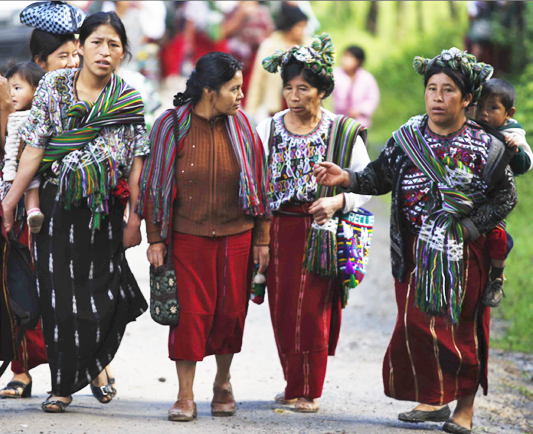

Working to empower the world’s women

As the world observes International Women’s Day, the MDG-Fund is working around the globe to strengthen women’s voices, increase their economic independence, improve their access to justice and end gender-based violence.
Two thirds of the world’s illiterate adults are female and over 65% of its poorest people are women and girls. Women lag far behind men in access to land, credit and decent jobs, and women are vastly under-represented in political and economic decision-making.
The MDG-Fund’s mission is to help governments reach the anti-poverty Millennium Development Goals, focusing particularly on the poorest and most marginalized populations, including women. Achieving equality between the sexes, itself a Millennium Development Goal, is key to achieving all the others.
For this reason, the MDG-F is funding joint United Nations programmes stretching from Bolivia to Bangladesh, where women and girls are being trained as leaders, advocating for themselves in courts, starting their own businesses and organizing to stop customs and practices that harm them.
In the Occupied Palestinian Territory, where conflict and tradition have severely limited women’s economic opportunities, a group of West Bank women are revitalizing traditional Palestinian hospitality and building livelihoods for themselves.
An MDG-F-funded survey on gender-based violence in the workplace in Bangladesh found that more than a third of women reported having been victims of violence in their lives, and the overwhelming majority said they had observed it at their jobs. The MDG-Fund is working with the government there on policies to reduce violence against women as well as on changing attitudes among men to curtail practices like dowry, early marriage and trafficking.
In the Ethiopian region of Tigray, where women have little access to financial, medical, educational and social support systems, the MDG-F’s “Leave No Woman Behind” programme is providing loans, literacy training and business skills to help vulnerable women support themselves and their families.
An MDG-F-funded programme in southern Turkey is teaching women farmers eco-friendly agricultural techniques to bring more women into Turkey’s labor force, and boost incomes.
And in Latin America, the MDG-F is working to improve living conditions for domestic workers in Brazil and Paraguay, and helping Nicaraguan women to break out of the cycle of poverty through business training and access to specialized health services.
Indigenous women are among the most disadvantaged people on the planet. In Bolivia, the MDG-F is helping to tackle extreme poverty by providing microcredit loans and work opportunities for rural indigenous women. In Guatemala, where 80% of indigenous people live in poverty, the MDG-F is supporting policies to encourage rural and indigenous women entrepreneurs.
And in Cambodia and Vietnam, indigenous handicraft producers – many of them women -- are learning marketing, quality control and costing skills through MDG-F-funded programmes to increase incomes for the country’s poorest people.
The MDG-Fund is an international cooperation mechanism through which UN agencies collaborate with national governments, local authorities and citizens’ organizations to accelerate progress on the Millennium Development Goals (MDGs) worldwide. The Fund’s particular aim is to ensure that the development gains being made are shared equally by the world’s most disadvantaged populations, including women.
Established in December 2006 with a $ 710 million contribution from the Spanish Government, the MDG-Fund operates 130 programmes in 50 countries, 13 of them focusing specifically on gender equality and women’s empowerment.
Click here to read other success stories from the MDG-F's work to fight poverty and improve livelihoods around the world.